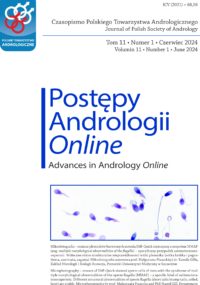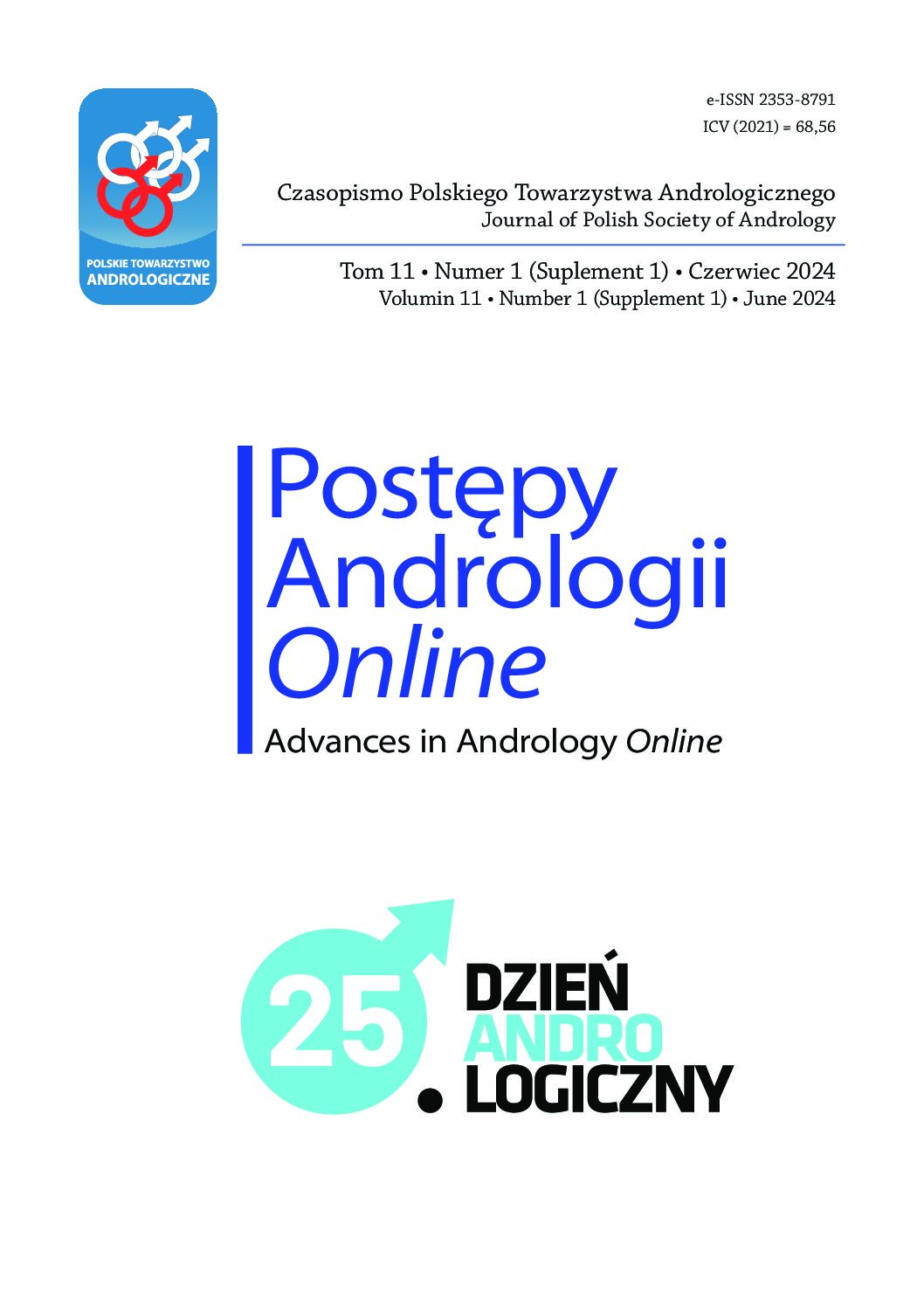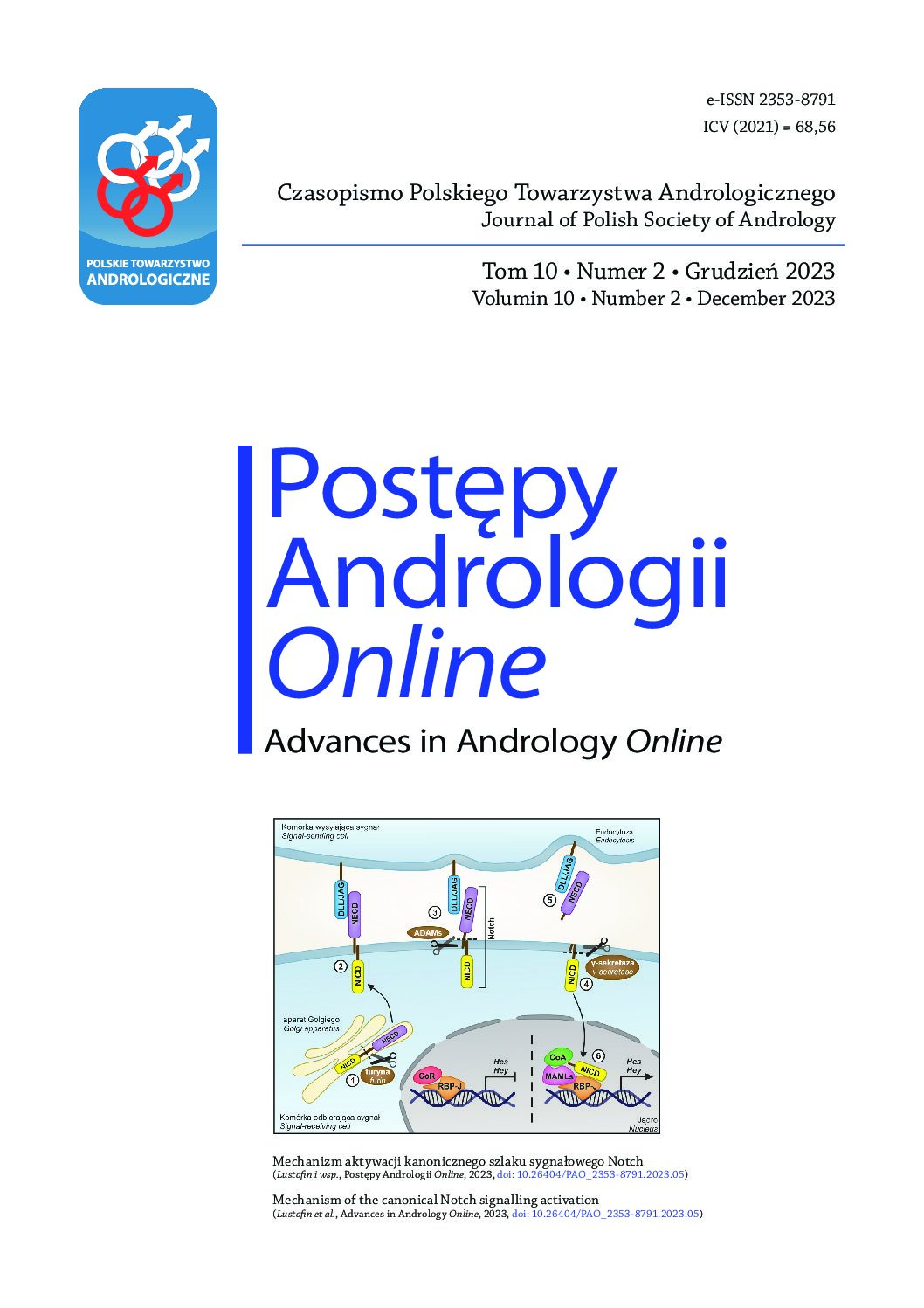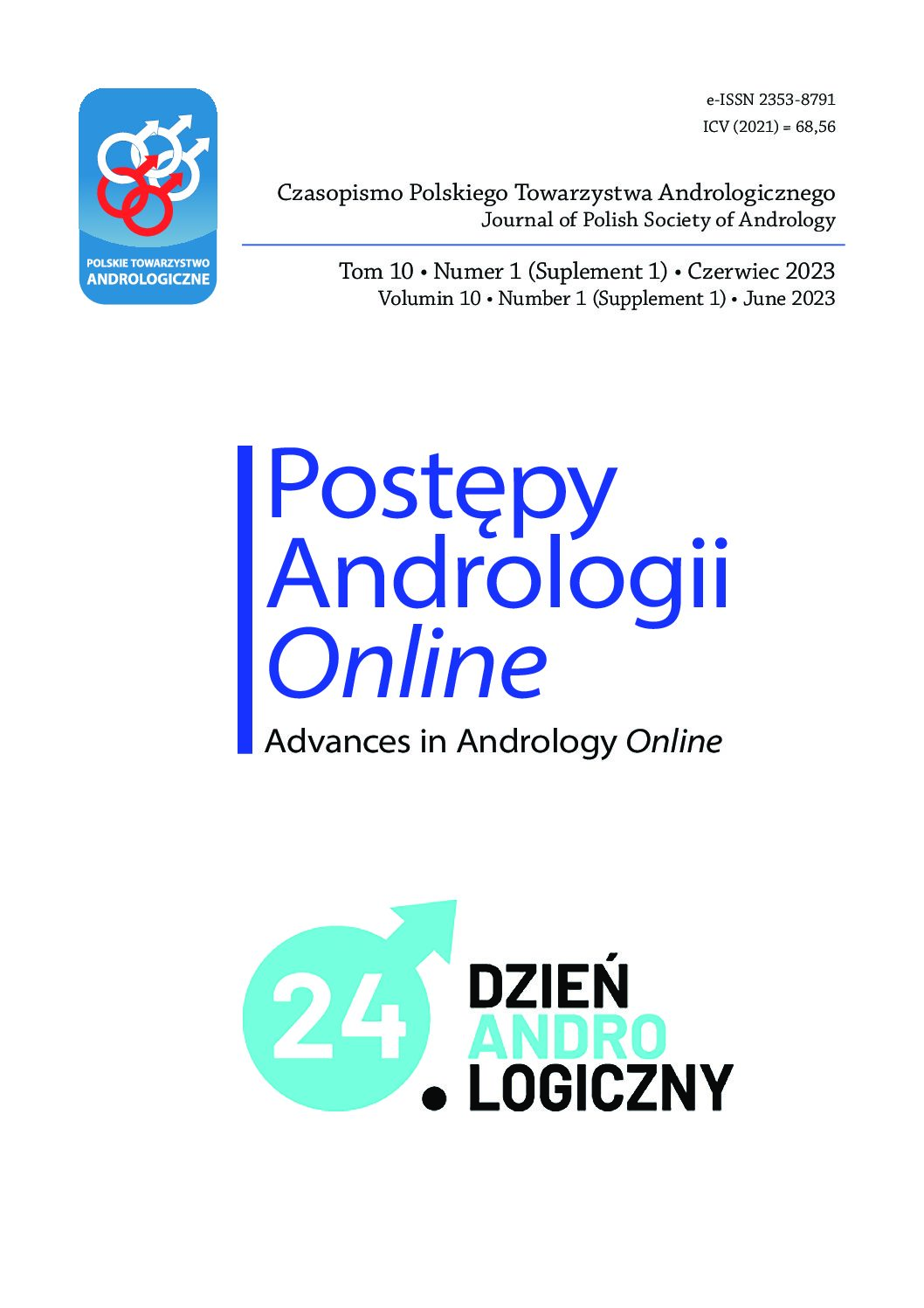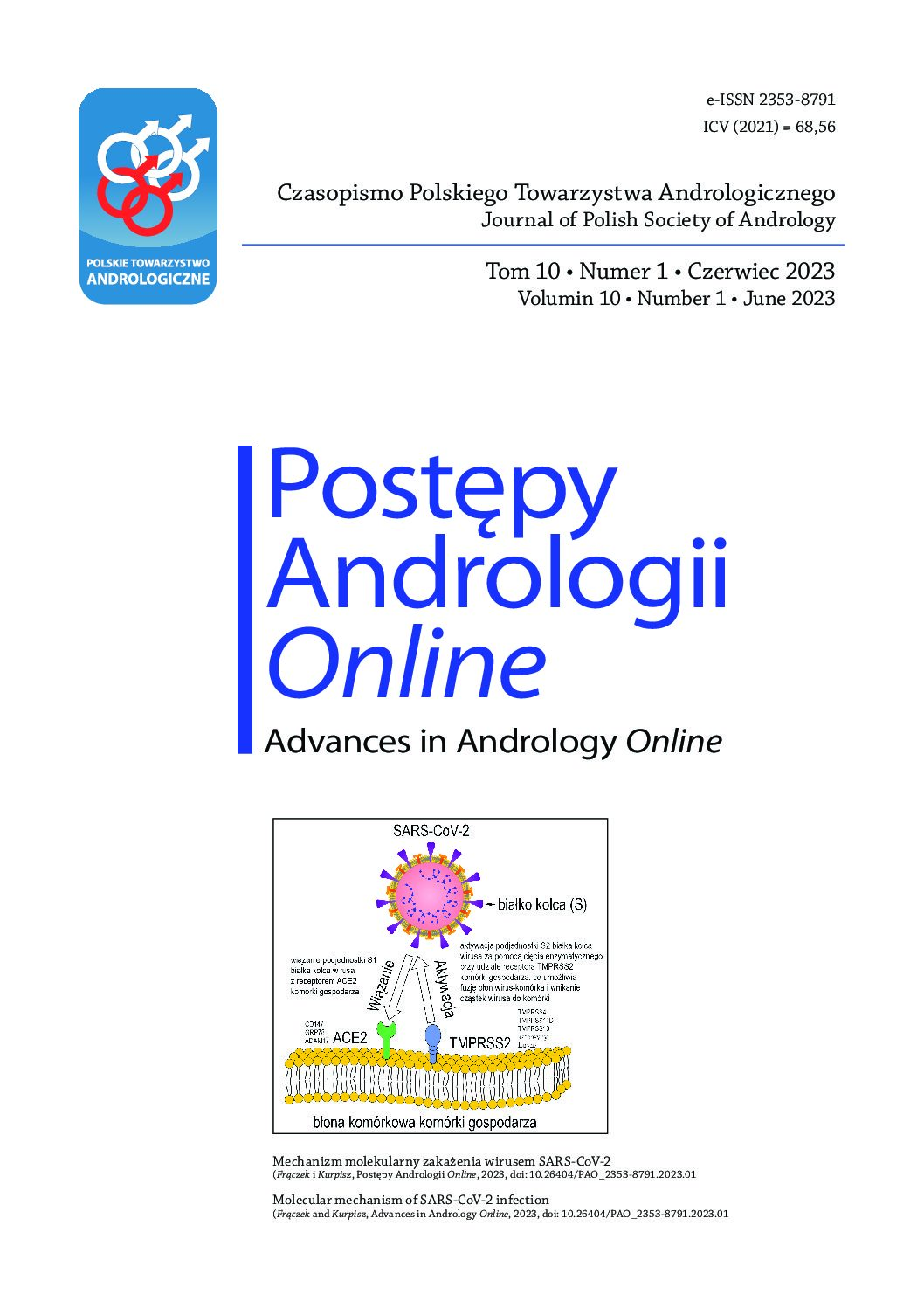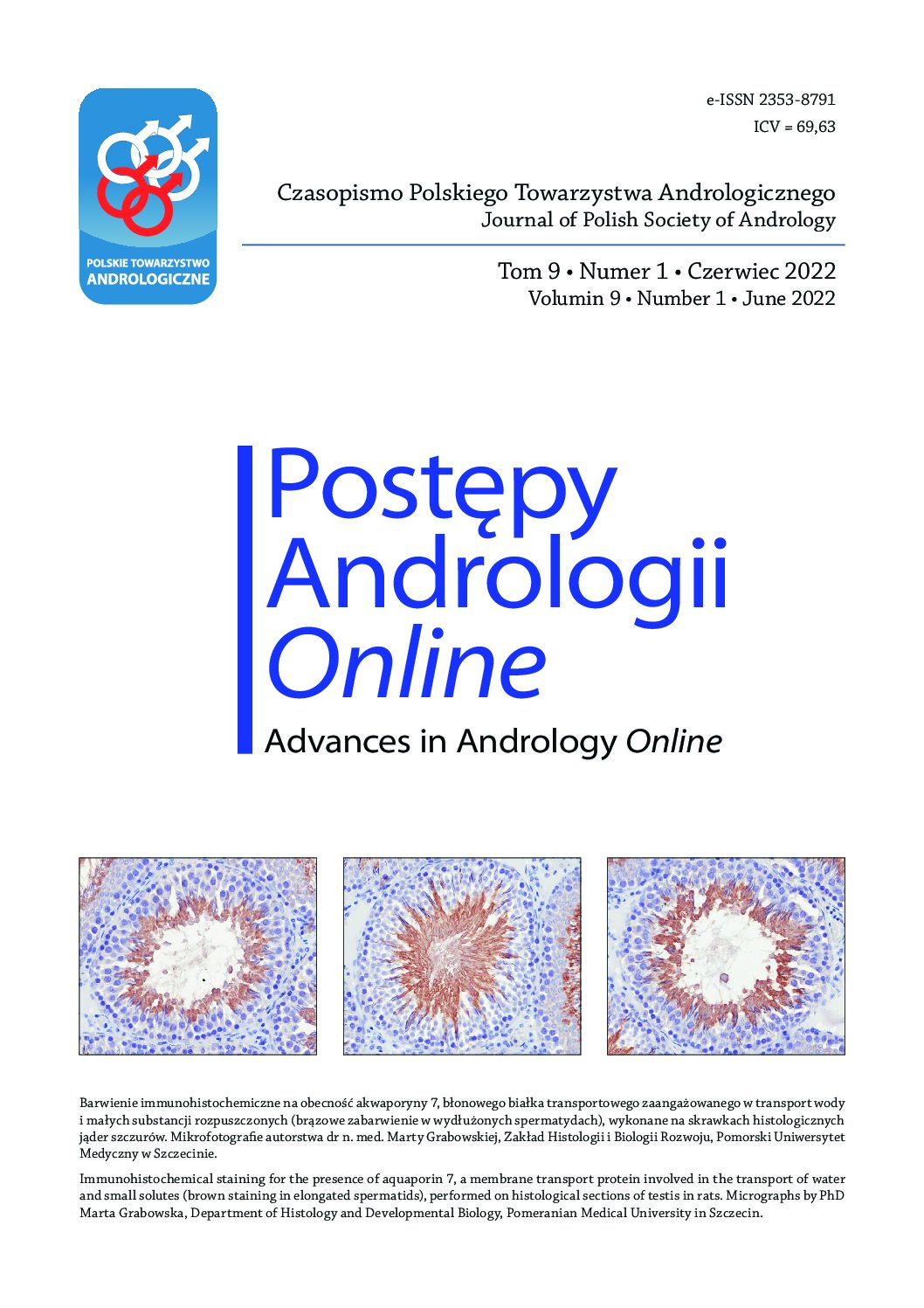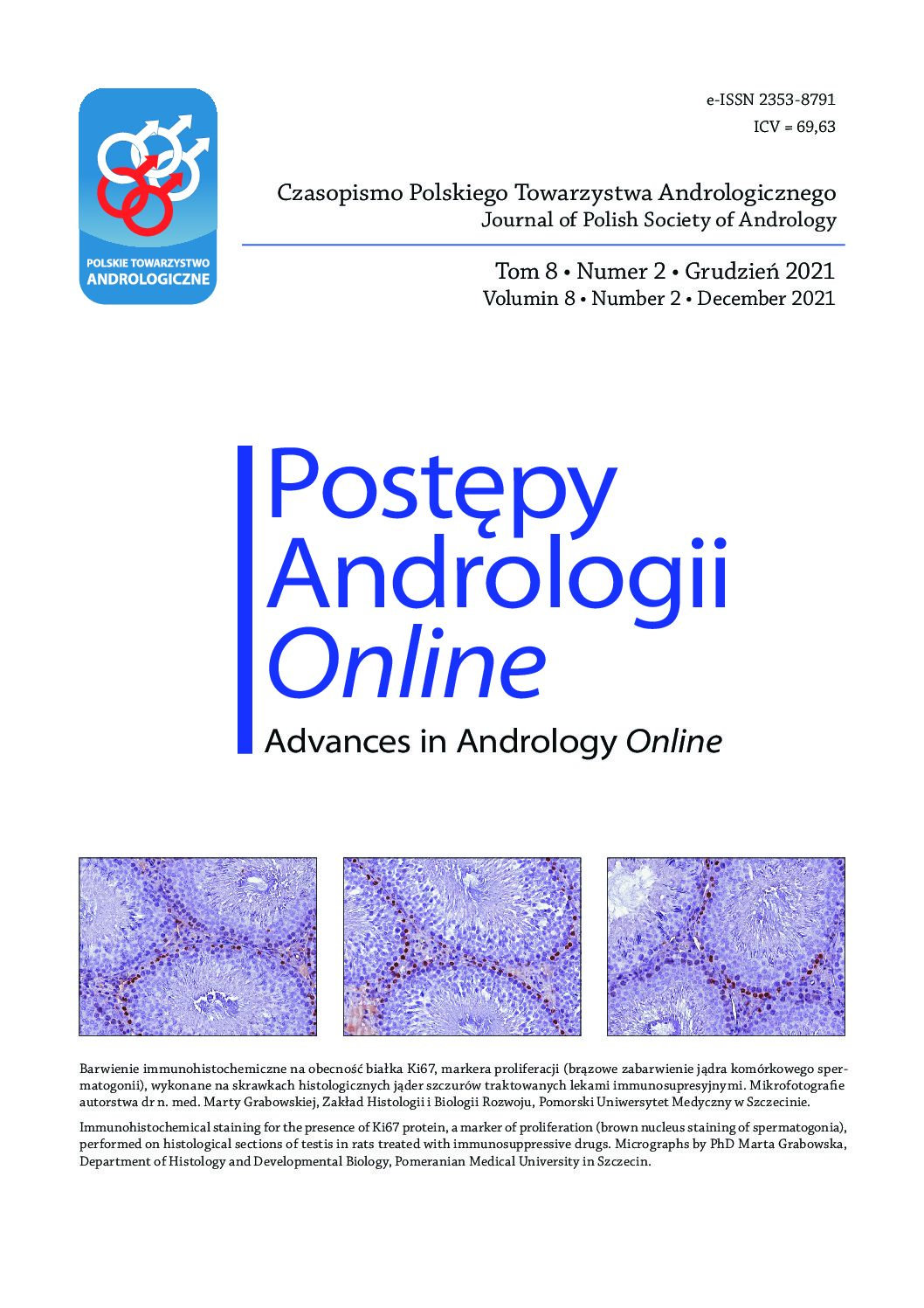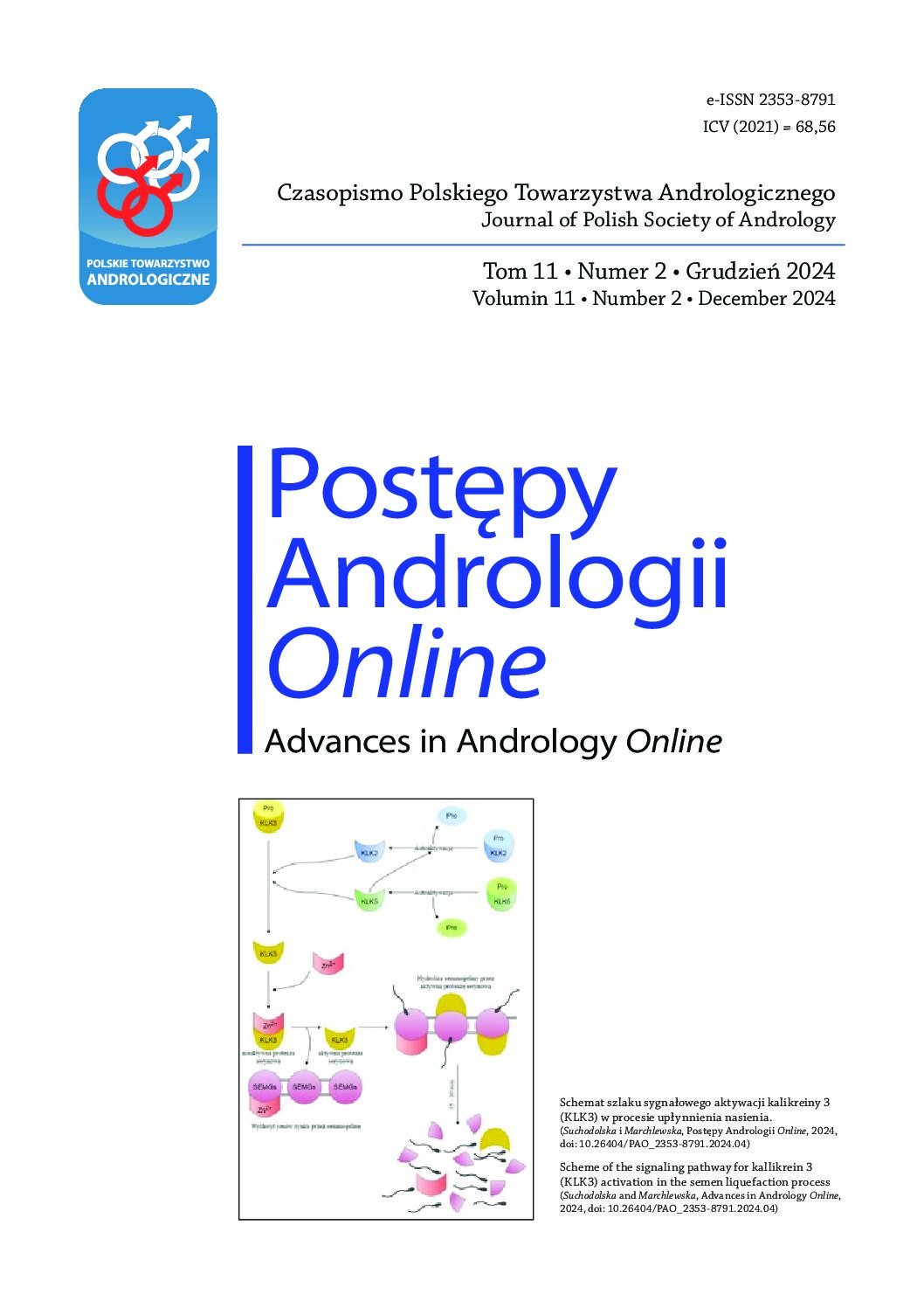Hyperthermia and sperm quality – a risk factor for male infertility or contraceptive target
Due to growing male infertility, many questions have arisen in recent years about the cause and mechanism of its formation. It is commonly accepted that body temperature can be harmful to male fertility. It is particularly visible in men with varicocele and history of cryptorchidism in childhood. Numerous studies regarding testicular hyperthermia have been carried out in animal models, but the underlying mechanism for reduced fertilizing potential as a consequence of genital heat remains not fully explained. The main reason for this situation is a relatively small number of controlled prospective studies with regard to various heat stress as well as a wide range of analyzed seminal parameters. Recently published data suggest the participation of the four possible mechanisms involved in heatinduced germ cell damage, including oxidative stress response, sperm death, epigenetic modifications and immune/autoimmune reactions. This review is an attempt to summarize current knowledge of the main pathophysiological concepts constituting a link between internal as well as external genital heat stress and male fertility/infertility status.
